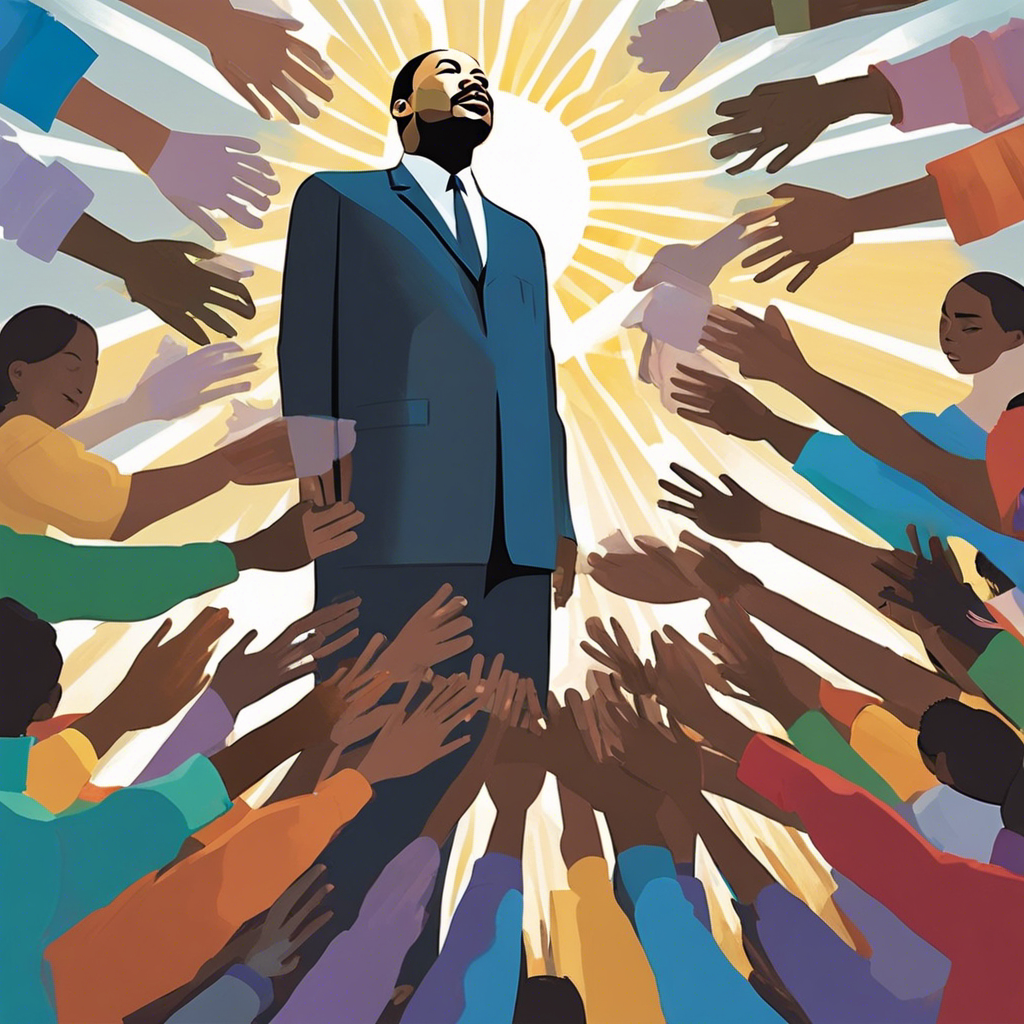
Martin Luther King Jr., widely regarded as one of the most influential figures in American history, was a prominent leader in the civil rights movement during the mid-20th century. His contributions and tireless efforts towards achieving equality and justice for African Americans have left an indelible mark on society.
But who was Martin Luther King Jr. and why do we celebrate him? Delving into his early life, his significant role in the civil rights movement, the impact of his iconic ‘I Have a Dream’ speech, his lasting legacy, and the importance of honoring his memory, this discussion will shed light on the remarkable life and work of Martin Luther King Jr.
Early Life and Education
Martin Luther King’s early life and education laid the foundation for his transformative leadership and unwavering commitment to justice and equality.
Growing up in Atlanta, Georgia, King was deeply influenced by his parents, who instilled in him a strong sense of morality and the importance of fighting for what’s right. He excelled in his studies and went on to obtain a doctorate in theology, which equipped him with the intellectual tools to articulate his vision for a better society.
King’s education also exposed him to the teachings of Mahatma Gandhi and other nonviolent activists, inspiring him to adopt peaceful methods in his pursuit of civil rights.
The combination of his upbringing and education shaped King into a compassionate and eloquent leader, whose tireless efforts continue to inspire and empower people from all walks of life.
Role in the Civil Rights Movement
A pivotal figure in the fight for civil rights, Martin Luther King played a crucial role in the advancement of equality and justice for all. As a prominent leader of the Civil Rights Movement, King inspired millions with his powerful speeches, unwavering determination, and peaceful protests.
He advocated for nonviolent resistance as a means to combat racial inequality and discrimination. King’s leadership and strategic organizing skills were instrumental in the successful Montgomery Bus Boycott in 1955 and the March on Washington in 1963, where he delivered his iconic ‘I Have a Dream’ speech.
His tireless efforts led to the passing of the Civil Rights Act of 1964 and the Voting Rights Act of 1965, which marked significant milestones in the ongoing struggle for racial equality. Martin Luther King’s unwavering commitment to justice and equality continues to inspire and empower people around the world in their fight against injustice.
Impact of Martin Luther King Jr.’s ‘I Have a Dream’ Speech
King’s ‘I Have a Dream’ speech left an indelible mark on the Civil Rights Movement, propelling the fight for equality to new heights and inspiring generations to come.
With passionate words and a vision of a future where racial injustice would be eradicated, King captivated the hearts and minds of millions. His powerful speech resonated deeply with individuals from all walks of life, instilling in them a sense of hope, unity, and purpose.
The impact of his words was immediate and far-reaching, igniting a renewed sense of urgency in the pursuit of civil rights. It served as a rallying cry for activists, galvanizing them to continue their fight for justice and equality.
King’s ‘I Have a Dream’ speech remains a symbol of hope and a testament to the power of words in the quest for a more inclusive and just society.
Legacy and Influence
His lasting legacy and profound influence on the Civil Rights Movement continue to shape and inspire the ongoing fight for equality and justice.
Martin Luther King Jr.’s unwavering commitment to nonviolent resistance and his powerful advocacy for civil rights have left an indelible mark on American society. His courageous efforts to dismantle racial segregation and promote racial equality haven’t only transformed the lives of African Americans but have also ignited a global movement for social change.
King’s speeches, including his iconic ‘I Have a Dream’ speech, have resonated with people across generations, reminding us of the power of unity and the importance of standing up against injustice.
His legacy serves as a reminder that the fight for equality is ongoing, and his influence continues to inspire individuals and communities to work towards a more inclusive and just society.
Importance of Celebrating Martin Luther King Jr
Celebrating the life and accomplishments of Martin Luther King Jr. serves as a powerful reminder of the ongoing fight for equality and justice in our society. It’s important to commemorate his legacy because it highlights the progress we’ve made and the work that still needs to be done.
By honoring King, we acknowledge the sacrifices he made and the courage he displayed in the face of adversity. His teachings and actions inspire us to continue advocating for social justice and to challenge the systemic inequalities that persist today.
Moreover, celebrating King fosters a sense of belonging and unity among individuals who share his vision for a more equitable society. It reminds us that we’re all connected in this ongoing struggle and that together, we can make a difference.
Frequently Asked Questions
How Did Martin Luther King Jr.’S Upbringing Shape His Values and Beliefs?
Martin Luther King Jr.’s values and beliefs were shaped by his upbringing. His parents instilled in him a strong sense of justice and equality, and his experiences with racism and discrimination fueled his passion for civil rights.
What Were Some of the Key Events During the Civil Rights Movement That Martin Luther King Jr. Was Involved In?
Martin Luther King Jr. played a crucial role in several key events during the civil rights movement. His leadership and activism were instrumental in the Montgomery Bus Boycott, Birmingham Campaign, and the March on Washington.
How Did Martin Luther King Jr.’S ‘I Have a Dream’ Speech Impact the Nation and the Civil Rights Movement?
Martin Luther King Jr.’s “I Have a Dream” speech had a profound impact on the nation and the civil rights movement. It inspired hope, unity, and a desire for equality, ultimately contributing to significant progress in the fight for civil rights.
What Are Some Ways in Which Martin Luther King Jr.’S Legacy and Influence Can Still Be Seen Today?
Martin Luther King Jr.’s legacy and influence can still be seen today through the continued fight for racial equality, the recognition of his achievements on Martin Luther King Jr. Day, and the ongoing pursuit of his dream for a more just and inclusive society.
Why Is It Important to Continue Celebrating Martin Luther King Jr.’S Achievements and Ideals?
It’s important to continue celebrating Martin Luther King Jr.’s achievements and ideals because his message of equality, justice, and nonviolence still resonates today. By honoring his legacy, we inspire future generations to strive for a more inclusive and harmonious society.
Conclusion
In conclusion, Martin Luther King Jr. was a pivotal figure in the Civil Rights Movement, advocating for equality and justice for all. His powerful ‘I Have a Dream’ speech continues to inspire generations, reminding us of the importance of unity and the pursuit of a more inclusive society.
Celebrating Martin Luther King Jr. not only honors his legacy but also serves as a reminder of the ongoing fight for equality and the need for continued progress in our society.










